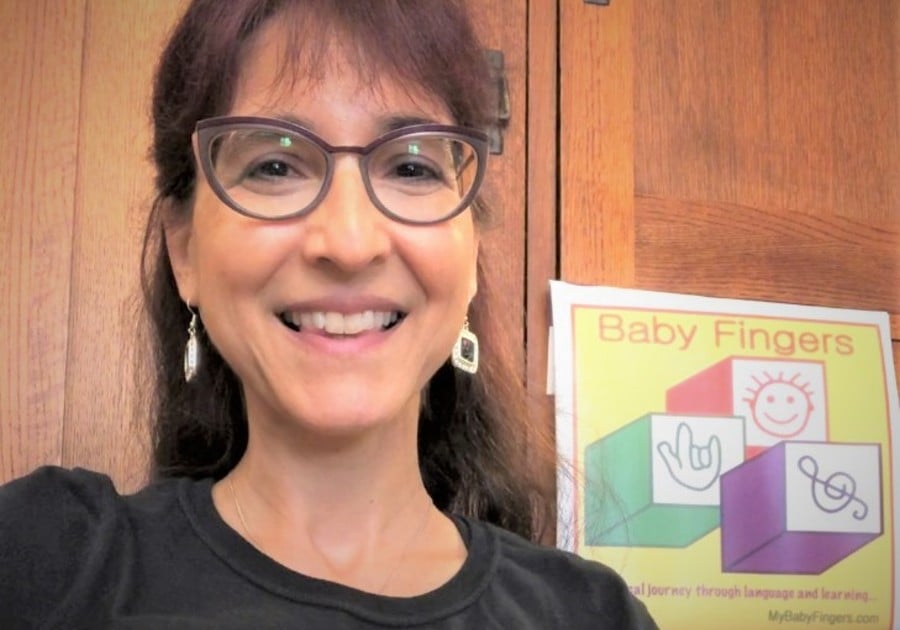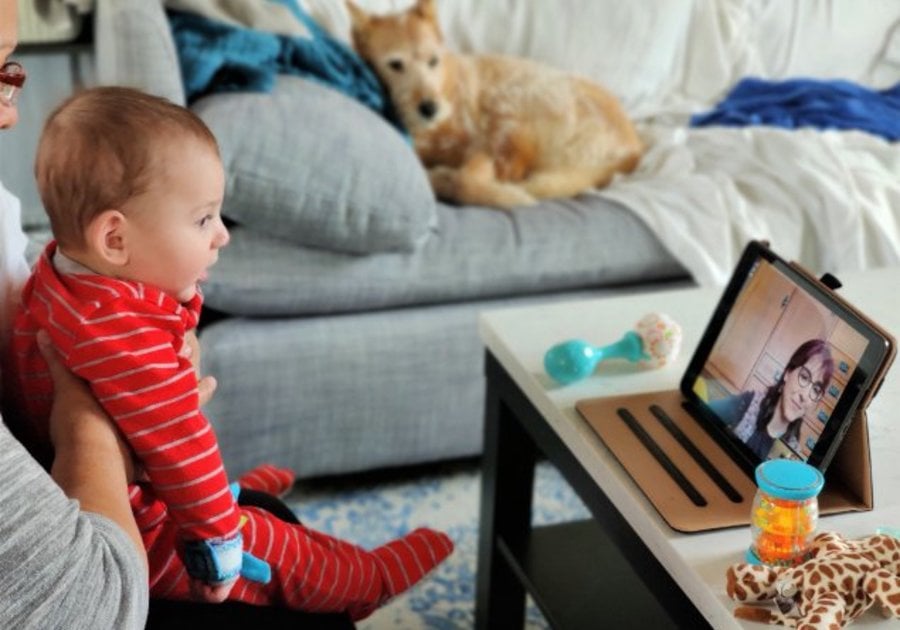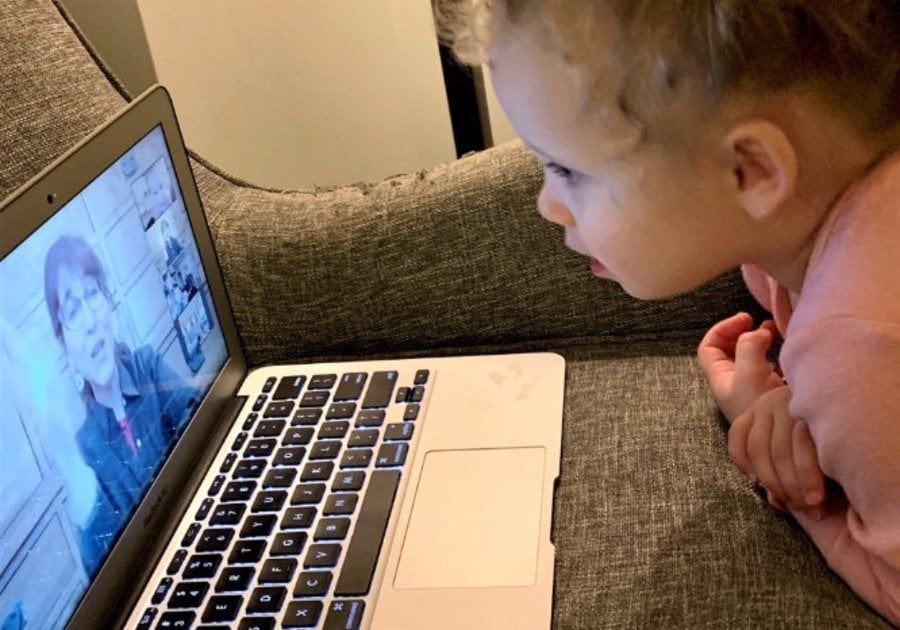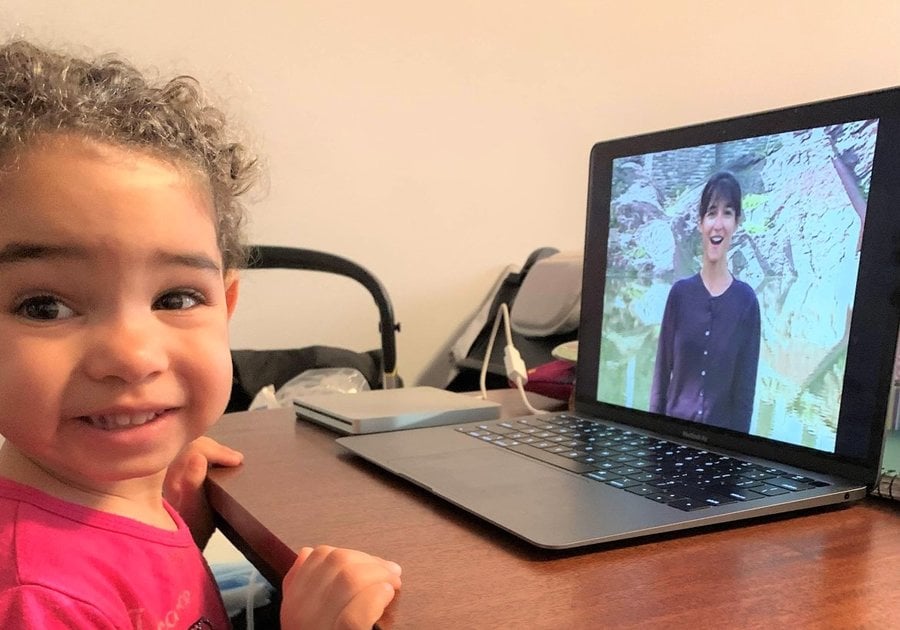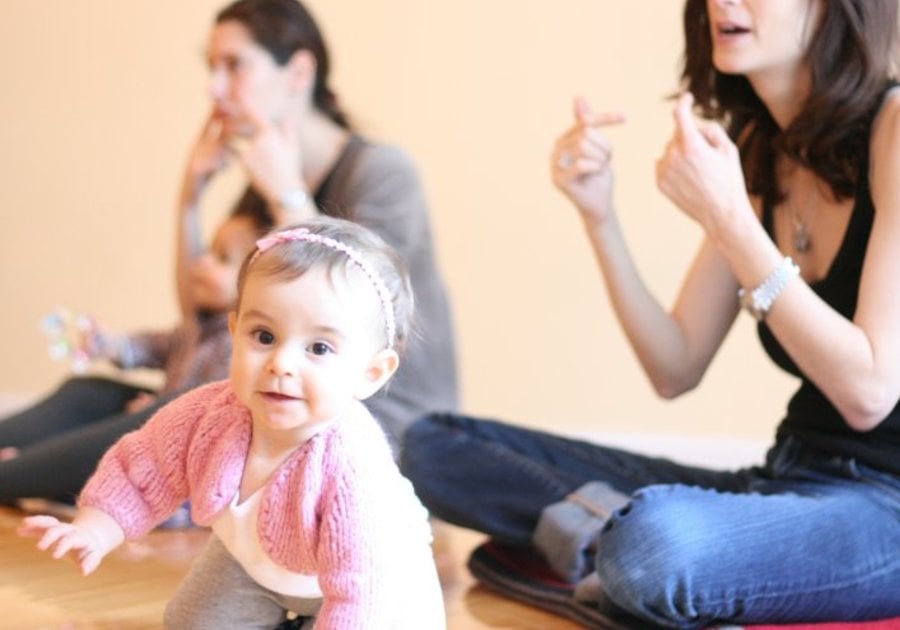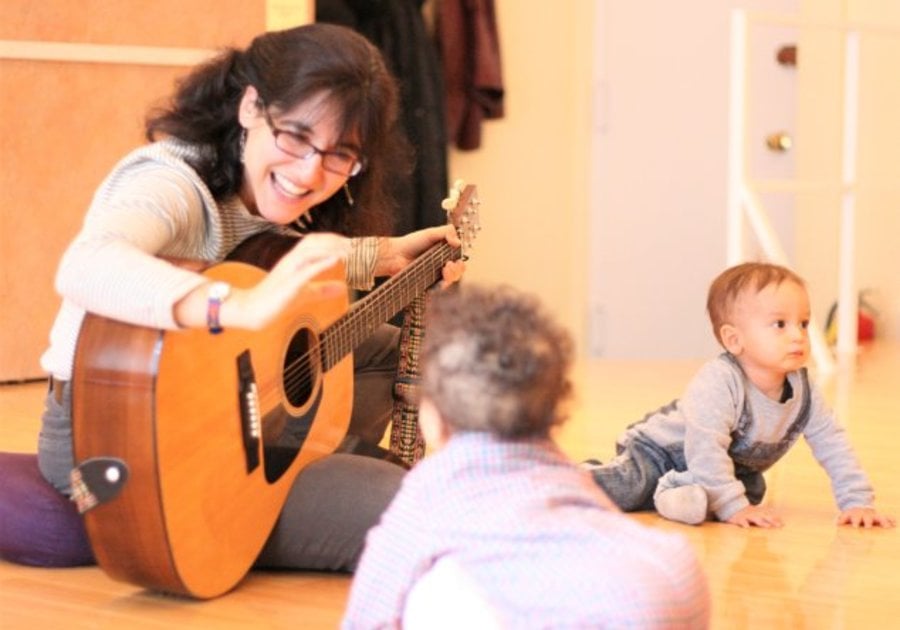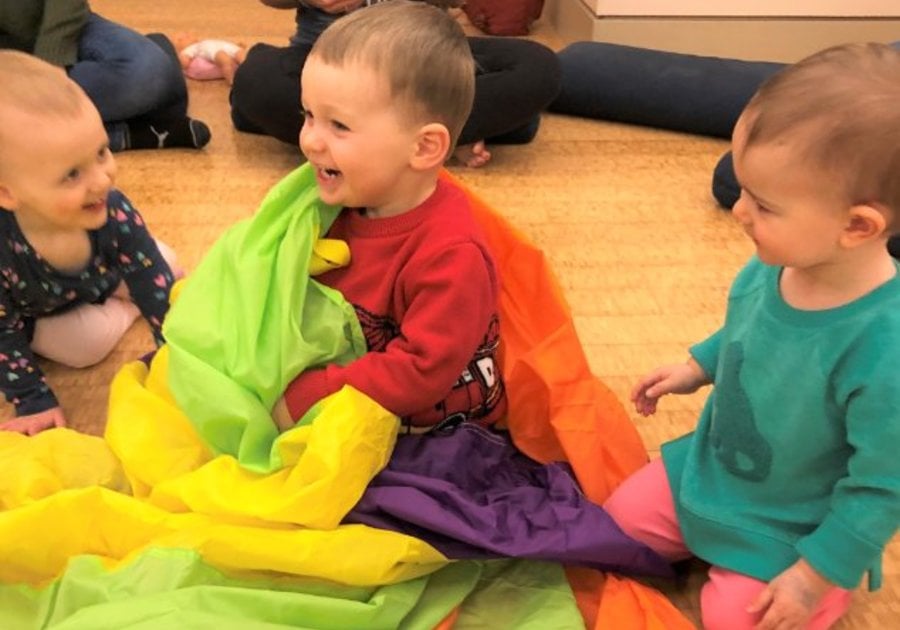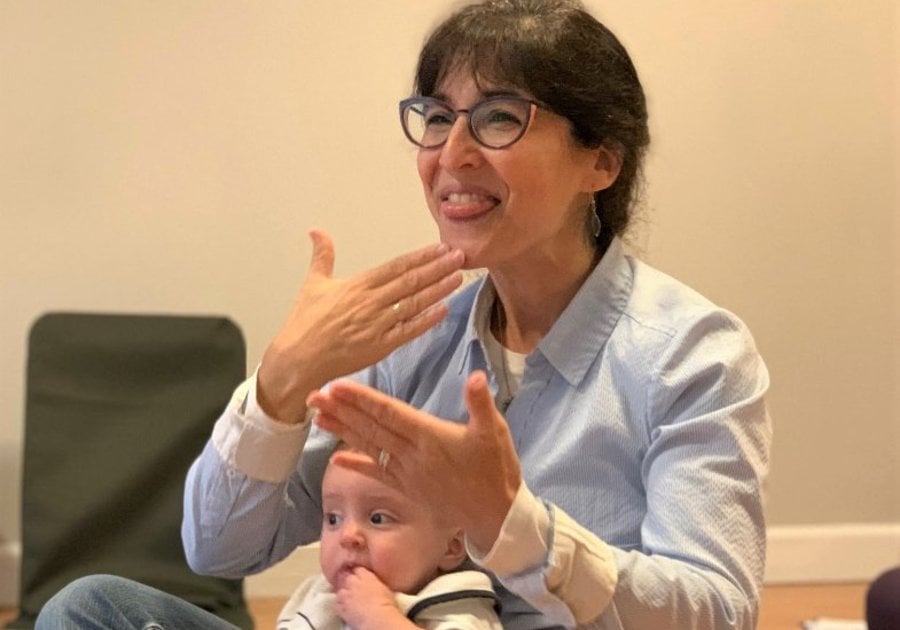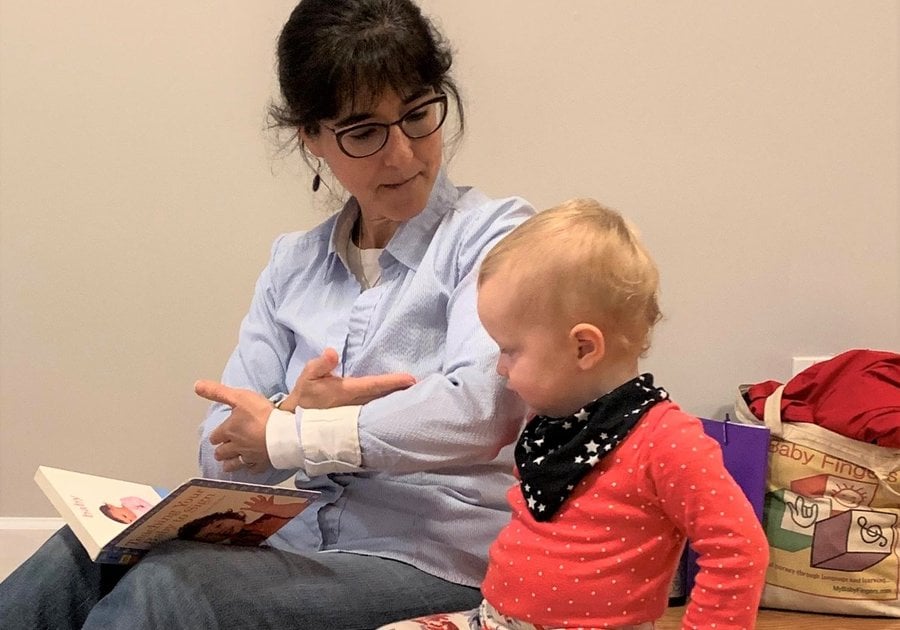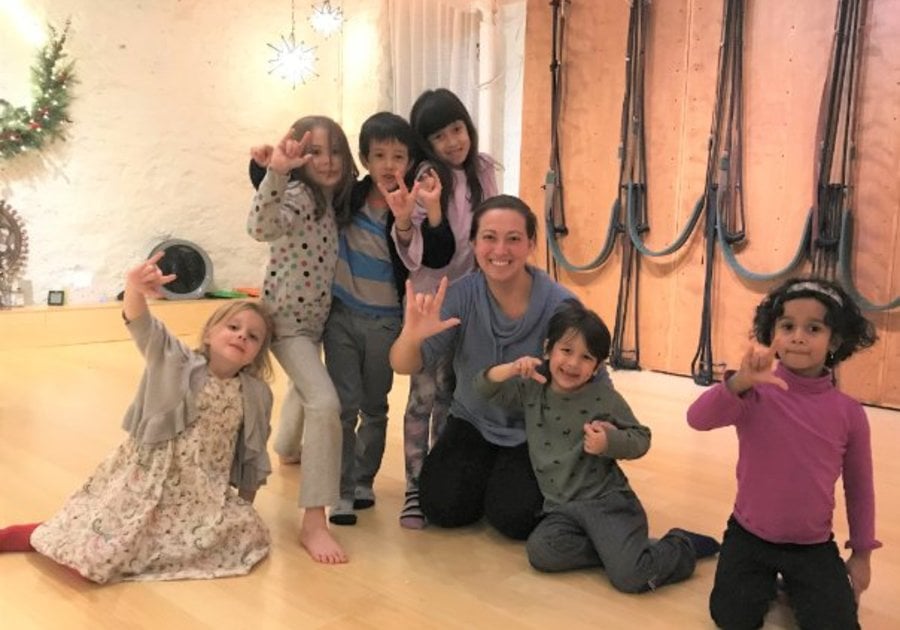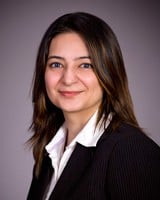Lora, please tell us a little about yourself and your background.
When I was around ten, I visited NYC for the first time and saw Children of a Lesser God on Broadway. That was my first exposure to deaf culture and American Sign Language (ASL), and it was through a medium I loved so much (theater). I was inspired to learn ASL and began to meet members of the Rochester deaf community. While in college, I wrote and directed a musical play that involved hearing students as well as local deaf performers. I soon became a board-certified music therapist and later, a teacher of the deaf. I have spent many years performing and directing; I directed youth musical theater for eleven years and just before the pandemic I had the opportunity to perform at the Flea with the New York Deaf Theater. As a music therapist, I’ve worked with deaf students and families, pediatric medical and hospice patients, adolescents in out-patient mental health facilities, and with older adults in nursing homes. I have authored articles and chapters on music therapy in addition to seven sign language books for kids. My own kids were my first ‘students’ and were models in one of my books – yes, I’m a proud New York City mom of two. I am passionate about language, creative arts, and family-centered work.
When was Baby Fingers incorporated? What was the concept behind creating this program?
Baby Fingers was founded in January 2000, so we’ve just turned twenty-one. My master’s thesis provided the foundation for our curriculum and program, offering music-mediated sign language instruction to families with young children - both deaf and hearing. My own children were inspiring to me, as they were early signers at six months old.
What is the ideal age group for your classes? How are classes structured?
Our signature Sign & Song classes are ideal for newborn to three years. We also offer an ASL Playgroup for ages eighteen months to six years; Story-Sign classes for families with children of any age, and also a dramatic story-sign for ages two to five years; Sign and Stretch (yoga) for ages fifteen months to three years. Our music classes are best for infants through preK and private lessons for school-age kids from K – 12th grade. We’ve added acting in ASL for tweens and teens, ASL Immersion for teens and adults (w/deaf teachers), and offer professional development for early childhood educators.
Our classes follow a weekly curriculum that I developed and my teaching team is trained in/certified to teach. They each bring their unique personalities and experiences into the program. Typically, we start and end with the same hello and goodbye songs each week, while building upon theme-based and practical vocabulary.
Does learning sign language and music help kids learn to communicate faster?
Yes. Babies naturally attempt to communicate via melodic vocalizations, gestures, and facial expressions. What better way to tap into this vast potential than by exposing little ones to sign language and songs? Among other essential benefits, music is a memory aid and signs develop earlier than speech. Songs offer a platform to practice turn-taking, vocal inflection and new vocabulary. Signs allow language to be accessible regardless of hearing levels or speech development, they can help to bridge multiple languages, and ASL is a full language with a rich culture. Learn more on our resource page.
Tell us more about the Music Therapy Program you teach at Molloy College.
For nearly ten years now, I’ve had the opportunity to teach future music therapists. Having supervised students in their music therapy clinical training for many years before that, it has been a wonderful opportunity to share theory and methodology with them as well. I teach both undergraduate and graduate students in courses such as Clinical Documentation, Music Therapy & Psychopathology, and Clinical Practicum. I have also designed (and teach) Music in Early Childhood, and Singing & Signing for the Student Teacher/Clinician.
Does Baby Fingers host virtual birthday parties? What themes do you cover?
Yes! When issues with Covid-19 no longer impact us, we can return to in-person parties and classes, though we’ll always offer virtual programming. Our staff can provide party planning from start to finish, or entertainment/edutainment for a short time during your party. We offer several choices that can be structured like a demo from any of our classes, an interactive musical performance including favorite and/or theme-based songs (with or without sign language), storytelling, yoga, creative drama/create a play… we can design it for your child of any age. We also offer our demo classes for baby showers.
How has the pandemic affected you?
The pandemic has been a challenge, to say the least, but we’re resilient. Our classes and teachers are so engaging, that moving to a virtual platform has actually been exciting. While we miss the in-person energy and hugs, online we have loved welcoming grandparents, cousins, friends, and new students who don’t live near enough to take our classes in-person. It has been fun to offer our program in new places such as online enrichment providers and public libraries. We’ve streamlined some of our programs as we’ve had to cut back a bit, but we’ve also expanded our team of deaf professionals and our offerings to families with deaf parents or children.
What advice would you give a mom who has a deaf child?
I recommend that parents with deaf children join our programs and learn sign language. Parents and grandparents can take our adult ASL classes with our deaf teachers; families can take our classes for kids with deaf and hearing teachers, maximizing exposure to ASL. We also provide online and local resources to help them connect with the deaf community. I always recommend playing music at home and talking to your child face to face throughout the day - a variety of sounds and vibrations can be comforting, and your child can begin to recognize how words look when spoken - but also SIGN as much as you can. Design a language-rich environment… Take pictures of yourself and other family members signing things like 'window', 'bath', 'banana', 'books', 'toilet', etc. and post them around your home along with the printed word. There is no downside to signing with your child; instead, you’ll see the tremendous benefits of accessible language, broad vocabulary, strong literacy attainment, clear self-expression, rich culture, and more.
Are there any music apps or books you would like to recommend for young kids?
Our own app is on the way! And our family CD (Stinky Feet) is available through CD Baby/Spotify. I also recommend my sign language books of course, as well as sign language storybooks by Dawn Prochovnic. Eric Carle books lend themselves really well to sign language, as do many childhood favorites - just keep reading together! You can subscribe to our YouTube channel for a variety of songs and signs. We love some of the oldies, show tunes, folk music - including the Beatles, Peter Paul and Mary, Tom Chapin, and more… Expose your child to a nice variety of your favorites!
Where do you see Baby Fingers five years from now?
I imagine Baby Fingers continuing to expand throughout the NYC Metro area (when we’re in person, our programs are offered throughout the boroughs and sometimes in Hoboken), in addition to online platforms. We have a teacher in DC and one in Philly for both in person (when possible) and live online classes. Also for live online we have a teacher in Georgia and one in California - so it’s really exciting to be able to work with professionals and students from near and far. We hope to reach even more families with deaf parents and children, and we plan to include more accessible resources that support our curriculum while providing additional opportunities for independent learning. The future holds many opportunities for us! Check our website and feel free to reach us through email or on 212-874-5978.
Thank you so much for your time!
Related articles:
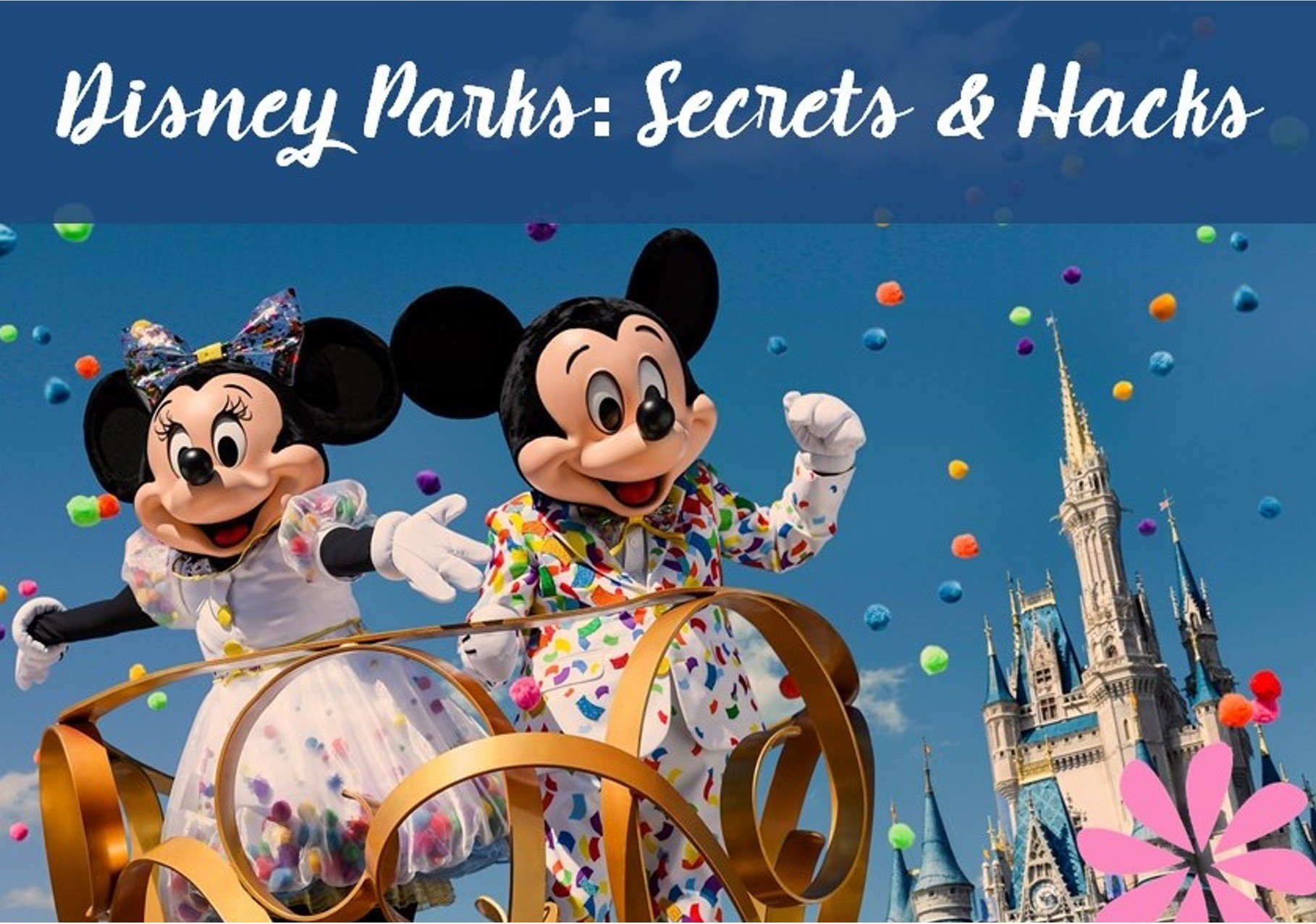 | 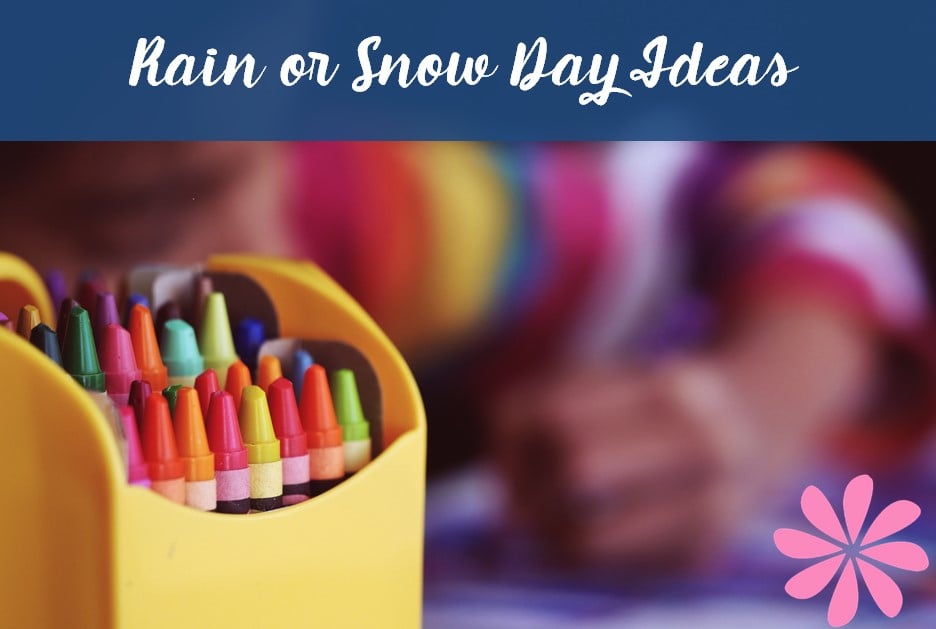 |  |
Macaroni Kid Lower Manhattan is the family fun go-to source for the latest and most comprehensive information in our area. Subscribe for FREE today.

